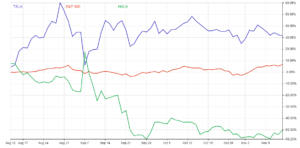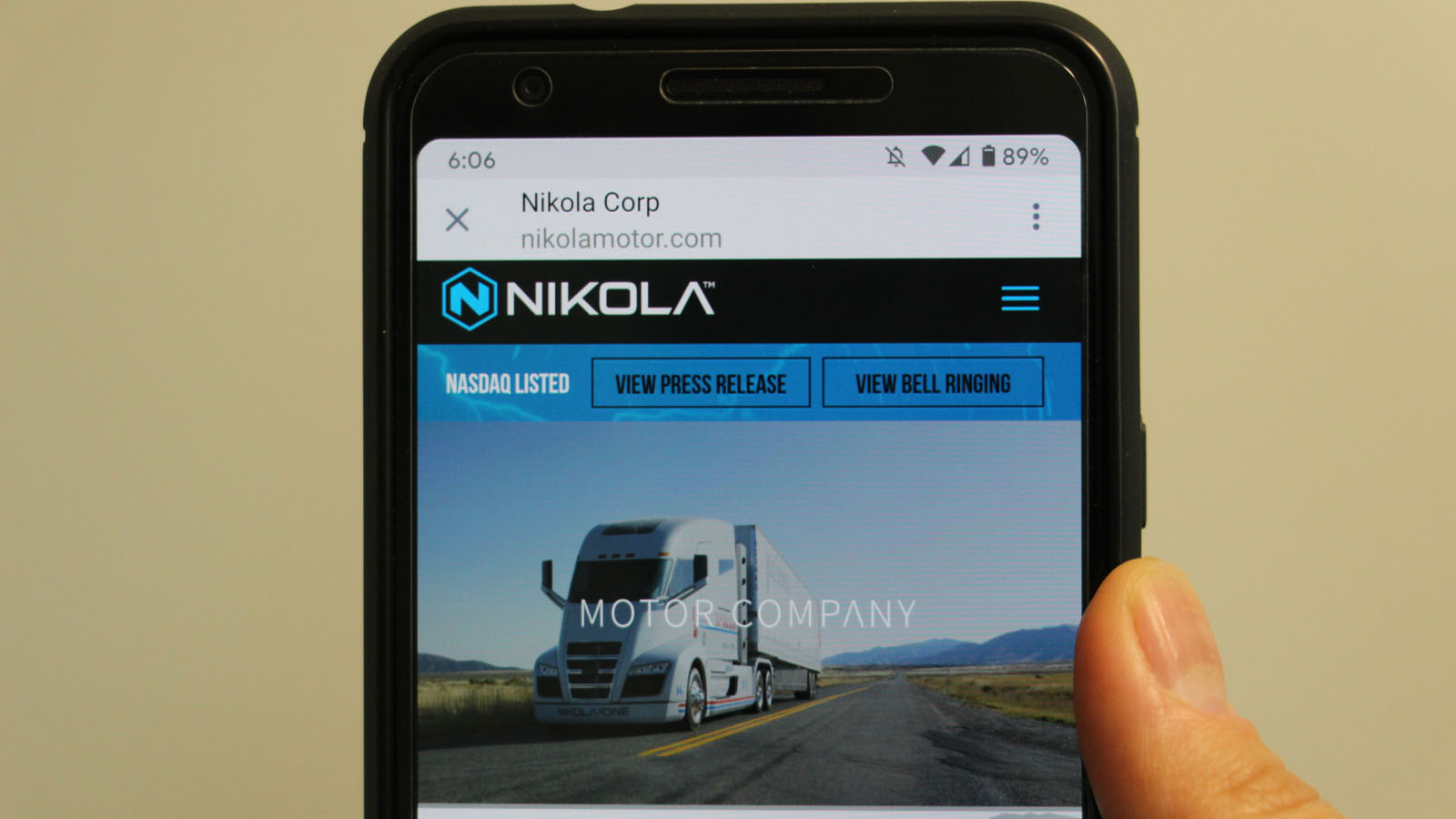Nikola (NASDAQ:NKLA), which is down 53.93% over a three month period, is evidence that even though the electric vehicle (EV) sector is on fire at the moment, you should exercise caution. Not every company is primed to be a multi-bagger. Case in point, Nikola stock

The company has no sales so far and is not projected to have them for at least the next two years. Still, it has a market cap of $8.135 billion.
The big question is, how did Nikola stock gain so much traction in such a short period of time? Well, you can chalk that up to industry leader Tesla (NASDAQ:TSLA). Elon Musk’s billion-dollar baby generates a lot of hype, and the industry is benefitting as a result.
However, not every company in the sector is a Tesla that is looking to burst through. Tesla’s overwhelming dominance in the industry results from many things, some of its own doing and some not. But it’s lightning in a bottle situation that is tough to replicate.
And we haven’t even gotten into some of the legal troubles that Nikola is facing. All things considered, it’s best if you invest your hard-earned capital someplace else for now.
A Closer Look at Nikola Stock

Undoubtedly, a lot of the EV sector at the moment is built on perception. That’s why Tesla is doing so well.
Its recent Battery Day announcements further cement its position as the preeminent automaker in the space, a fact that is unlikely to change for the foreseeable future.
The company is doing all it can to make sure its battery technology becomes more cost-effective to compete with traditional gas-guzzling cars.
That makes the comparisons between Tesla and NKLA a stretch for the most part. The pace of innovation at Tesla is astounding, and it will take years for other players in the market to catch up. Tesla is on track to deliver 500,000 cars this year, while Nikola doesn’t have any sales at this point.
Meanwhile, legal issues for Nikola are on the rise. In September, Hindenburg Research issued a report titled: “Nikola: How to parlay an Ocean of Lies into a Partnership with the Largest Auto OEM in America.” The report was scathing in nature, accusing the electric-vehicle company and its CEO, Trevor Milton, of overhyping its truck’s capacities.
The aftermath hasn’t been pretty. Naturally, the company came out with its own set of defenses. But the markets didn’t buy them, nor did analysts. Newly-minted CEO, Mark Russell, is doing all that he can to stabilize the business. However, the reputational damage is done.
Last week, the Financial Times reported that Nikola and its founder had received subpoenas from the U.S. Attorney for the Southern District of New York concerning the fraud allegations made in the original short-seller report. In its third-quarter earnings report, the company said legal costs surrounding the allegations are now $5 million.
The dollar figure isn’t important. It’s the level of trust the investors lose as a result of these charges.
Competition Is Ramping Up
Because of outsized valuations, every automaker wants to have a piece of the EV sector, but companies operating in niches are in a better situation to play the market. One has to realize they can lose the impetus pretty easily in a fast-moving environment unless they remain vigilant.
Nikola pretty much had a monopoly in heavy-duty fuel cell trucks. It still does, but companies like Tesla and Toyota (NYSE:TM) are not going to give in that easily.
Tesla and Nikola are already at loggerheads, with the latter accusing the former of stealing its truck’s design for the Tesla Semi, launched in 2017. Tesla has filed a countersuit alleging Nikola of stealing the design for Nikola’s electric truck from Croatian car company Rimac Automobili.
Meanwhile, Toyota, along with part-owned Hino Motors (OTCPK:HINOY), is launching a hydrogen-fueled semi-truck in 2021. That will bring it into direct competition with Nikola’s hydrogen fuel cell vehicle, set to launch in 2023.
It goes without saying that this is a David vs. Goliath battle. Toyota’s net revenue from 2012 to 2020 is approximately equal to $278 billion. Hino generates $16 billion of revenue per year. Nikola reported $36,000 in revenue in its most recent quarter. I wouldn’t call it a fair fight, but there you have it.
Nikola Stock Has an Unrealistic Valuation
For a company that has zero sales, a valuation of $8.135 billion doesn’t make sense. Hino, in comparison, has a market value of $3.8 billion, despite selling close to 200,000 trucks a year. Part of that goes back to the Hindenburg Research report’s argument; that Milton’s tall claims led to Nikola stock exploding to unrealistic levels.
While I can’t say anything about the allegations, I will say that there isn’t enough on the books to justify the stock trading at 87.14 times forward enterprise value to sales. The only saving grace is the company’s partnership with General Motors (NYSE:GM).
CEO Mary Barra has kept nothing off the table concerning the automakers burgeoning EV business. In case GM decides to spin off its EV segment to NKLA, the latter will have a lot to gain. But then again, is that enough to warrant a buy decision?
It’s better to go ahead and sell this one before the securities investigation uncovers something further damaging.
On the date of publication, Faizan Farooque did not have (either directly or indirectly) any positions in the securities mentioned in this article.
Faizan Farooque is a contributing author for InvestorPlace.com and numerous other financial sites. He has several years of experience analyzing the stock market and was a former data journalist at S&P Global Market Intelligence. His passion is to help the average investor make more informed decisions regarding their portfolio.
Faizan Farooque is a contributing author for InvestorPlace.com and numerous other financial sites. He has several years of experience analyzing the stock market and was a former data journalist at S&P Global Market Intelligence. His passion is to help the average investor make more informed decisions regarding their portfolio.
Faizan Farooque is a contributing author for InvestorPlace.com and numerous other financial sites. He has several years of experience analyzing the stock market and was a former data journalist at S&P Global Market Intelligence. His passion is to help the average investor make more informed decisions regarding their portfolio.
